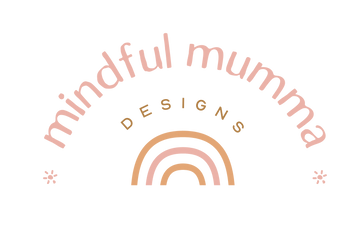Discussing Mental Health: Vital Conversations with Kids
Mental health is a critical aspect of our overall well-being, yet it often takes a back seat to physical health in our daily conversations. This is especially true when it comes to discussing mental health with our children. With 1 in 7 Australian kids experiencing mental health issues, it's more important than ever to address this topic early and openly.
Half of all mental health conditions begin before the age of 14, which means that we have a unique opportunity to create a strong foundation for our children's well-being by talking about it. When we prioritize mental health discussions in our families, we can help our children develop healthy coping mechanisms and resilience that will serve them throughout their lives.
The Power of Open Communication
When we create a safe space for our children to express their emotions and discuss their mental health, we empower them to be proactive about their well-being. Open communication is essential to breaking down the stigma surrounding mental health, which can prevent kids from seeking help when they need it.
Here are some practical tips for opening up the conversation about mental health with your children:
- Normalize the topic: Encourage discussions about mental health as part of everyday life, just like you would discuss physical health or schoolwork. This will help reduce any feelings of shame or embarrassment.
- Be approachable: Make sure your children know that they can come to you with any concerns or questions about mental health, and that they won't be judged or dismissed.
- Educate yourself: Research mental health topics, so you can provide accurate and age-appropriate information to your children. This will also help you recognize potential signs of mental health issues and be better prepared to support your child.
- Use teachable moments: When mental health is portrayed in the media or comes up in conversation, use these opportunities to discuss the topic with your children.
- Listen actively: When your child shares their feelings or concerns, give them your undivided attention, and validate their emotions. Avoid offering solutions immediately; sometimes, they just need to be heard.
- Encourage healthy coping strategies: Teach your children various techniques for managing stress, anxiety, or other emotional challenges, such as deep breathing, journaling, or talking to a trusted friend or family member.
- Seek professional help when necessary: If your child is struggling with their mental health, don't hesitate to consult a mental health professional for guidance and support.
The Benefits of Open Dialogue
By initiating conversations about mental health with our children, we foster a supportive and accepting environment where they feel comfortable discussing their feelings and concerns. This, in turn, can lead to:
- Improved emotional resilience and coping skills
- Greater self-awareness and understanding of their mental health
- A stronger parent-child bond and sense of trust
- Early intervention and support for emerging mental health issues
If you or anyone you know is struggling mentally, please don't hesitate to reach out to one of the services listed below. They're here to help.
LIFELINE 13 11 14
HEADSPACE 1800 650 890
KIDS HELPLINE 1800 55 1800
MINDSPOT CLINIC 1800 61 44 34
QLIFE 1800 184 527
These services offer free support to young people and adults alike, and can make a real difference to those who are struggling. Remember, mental health problems don't define who you are. They are something you experience. So let's work together to break down the stigma and create a more supportive and compassionate society for all.








Leave a comment